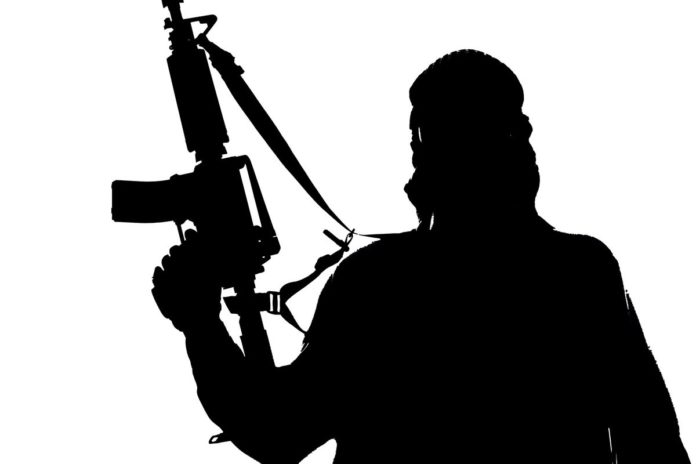COLUMN
-By RC Ganjoo
When the world is fighting against the Covid-19 pandemic and nations, scientists and organisations are trying hard to prevent further dwindling of economic and socio-psychological aspects at human costs, the scourge of terrorism continues to destroy lives.
Experts are of the opinion that terrorist groups use the pandemic as an opportunity to increase attacks, adding to the crisis while exploiting the shattering situation of the governments.
While pronouncing Covid-19 a ‘punishment’ from God, the IS and Al Qaeda militant organizations have urged their supporters to take care of themselves and non-Muslims to utilise their time under lockdown to learn about Islam.
After the US-Taliban Doha peace deal in February, it was being hoped that Afghanistan would witness a significant reduction in violence. But it did not happen. The attack on a Kabul maternity hospital on May 12 was the most horrific and sickening incident in a wave of violence. Human Rights Watch (HRW) called it an apparent war crime.
It is beyond any doubt that terrorists are unpredictable elements. As long as terrorist networks remain intact, no one can foretell their actions with surety.
Pakistan has also seen a rise in terrorist attacks in the last two months. There has been a surge in militant activities in parts of the tribal districts, mainly North and South Waziristan. Militant attacks have been reported from areas closer to the Pak-Afghan border Datta Khel. Militants have been expanding their areas of operation.
Reportedly, the Tehrik-i-Taliban Pakistan (TTP) and other militants are trying to hit their native towns to reclaim their lost influence. Outfits like Jamaatul Ahrar are in process of regrouping in their towns of origin, Bajaur and Orakzai. Questions are being raised about the return of Pakistani Taliban militants sheltering in Afghanistan who want to relocate to their native towns in the tribal districts. It is reported, that the Pakistan government would pardon TTP militants and allow them to come back, a similar concession would be offered to Baloch insurgents.
The Baloch insurgent leaders under new leadership are emerging from within their ranks. The strategy of Baloch insurgents is unique in execution. For major attacks, they take time in planning and execution. During intervals between large scale attacks, they continue to engage forces in low-intensity attacks. But there are spoilers and exploiters all around the region contributing to keeping the insurgency alive.
Currently, there are about 40,000 terrorists in Pakistan, of which 16 have been declared as international terrorists by the United Nations. These terrorists belong to terror organizations like Jamaat-ud-Dawa and Jaish-e-Mohammad and both these organizations are banned worldwide, but their activities still continue in Pakistan.
Last year, the United Nations Security Council declared Masood Azhar as an international terrorist for masterminding the terror attacks in Pulwama and Pathankot, but Pakistan has so far not taken any action against him.
“With the start of intra-Afghan talks, we were expecting the Taliban to reduce the number of their attacks, but unfortunately their attacks are still going in high numbers,” Fawad Aman, spokesman for the Afghan defence ministry, said.
Representatives from a number of countries who spoke at the inauguration of the peace talks in Doha on September 12, 2020, called on the Taliban to announce an immediate ceasefire before negotiators sat down to find a way to end decades of war in Afghanistan. The Taliban did not say anything about a possible ceasefire at the ceremony
The Afghan government delegation was led by Masoom Stanekzai while the Afghan Taliban team was headed by Shaikh Abdul Hakim Haqqani. Also present during the talks were American Secretary of State, Mike Pompeo, US Special Envoy for Afghanistan Zalmay Khalilzad, chief of the High Afghan Council for National Reconciliation Dr Abdullah Abdullah as well as Afghan Foreign Minister Hanif Atmar.
In a speech at the starting of talks, Taliban co-founder Mullah Abdul Ghani Baradar reiterated the insurgents’ demand that Afghanistan should be run according to Islamic law, highlighting a likely sticking point. A comprehensive peace deal could take years, and will depend on the willingness of both sides to tailor their competing visions for Afghanistan and the extent to which they can agree to share power.
The two US senior officials, involved in planning the May 2011 raid that killed Osama bin Laden, Bill McRaven, who was commander of Joint Special Operations Command and Michael Morell, who was deputy director of the CIA at the time of the raid, has warned that a US pullout from Afghanistan would result in a Taliban takeover within a year. Expressing concern about the peace deal McRaven has said, “my assessment is that the Taliban would take over the country again in a matter of months.” Morell said, “my assessment is that they would provide safe haven to al-Qaida.”







